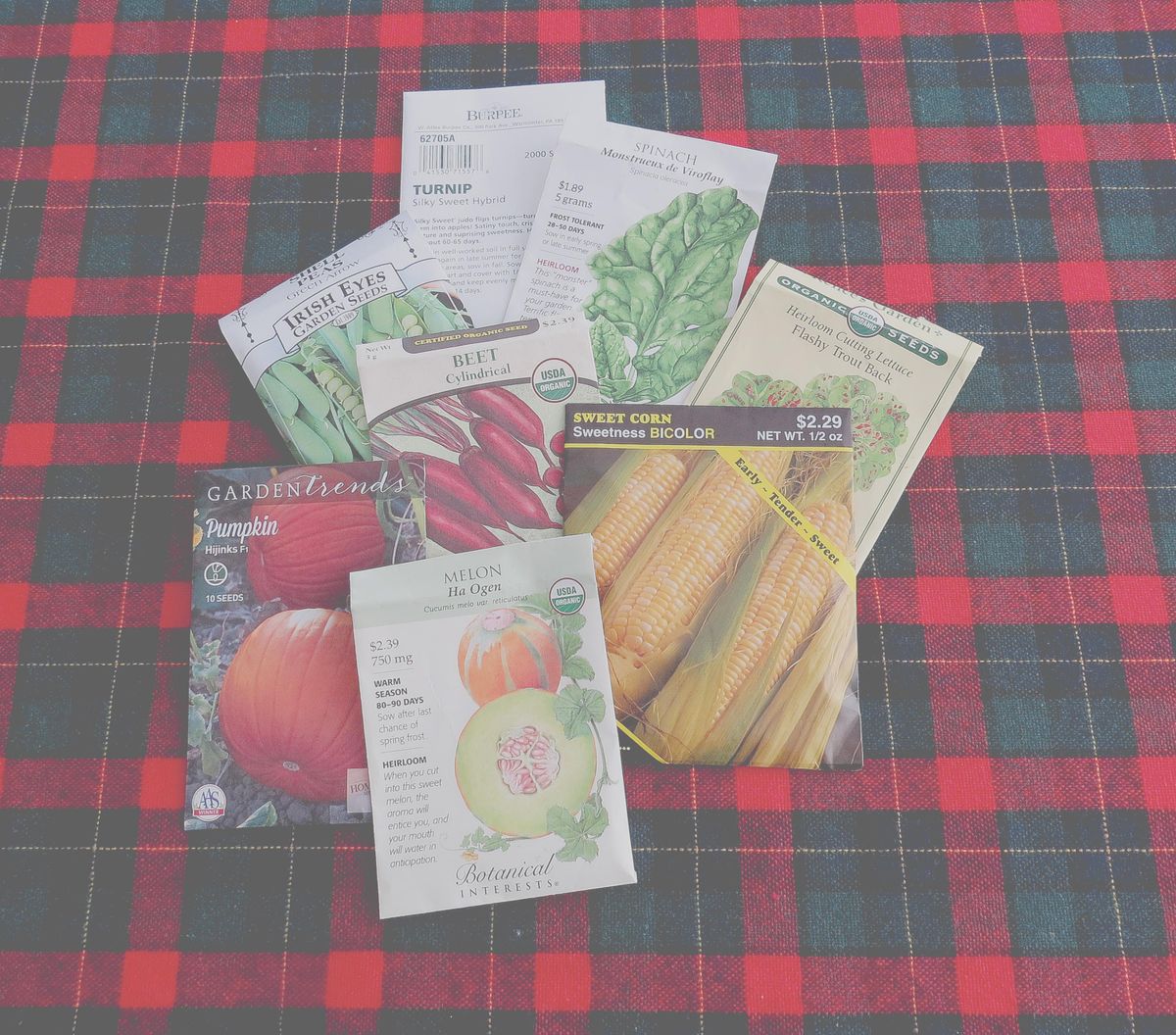Gardeners are making their lists, checking their seeds to be ready for the next planting season

Now that the holiday season is behind us, gardeners can focus their attention on planning this year’s garden. If you’re like me, you’ve had a steady stream of catalogs arriving in your mailbox. Now is the perfect time to find out what’s new while taking stock of what’s left of your seed collection from last year.
The average shelf life for vegetable seeds is listed in the information box. It refers to the period of time when you can expect good germination (sprouting) rates. These are general guidelines since some seeds are viable for a lot longer than we give them credit.
There is an easy way to test older seeds. Place 10 seeds from a packet onto a moistened paper towel. Fold the towel around them and set inside a plastic bag. Refer to the seed packet for the typical days to germination, and check on the seeds every few days.
Count how many have sprouted. If all 10 have, that is a 100% germination rate. If only 4 have, that is 40%. If the germination rate is 50% or lower, consider either replacing those seeds or sowing the seeds more thickly than what is recommended on the seed packet. You might need to thin the extra seedlings to space the plants appropriately, but at least you didn’t let the seed packet go to waste.
If you are in the market for new seeds, check with your local independent garden center first. This allows you to study the packets in person and save on shipping costs.
Seed catalogs are great fun to look through whether in print form or online. Here are some of my favorites:
Baker Creek Heirloom Seeds (rareseeds.com) – Their catalogs are filled with a wide variety of unusual or hard-to-find seeds. Each year, Baker Creek also publishes its hefty “Whole Seed Catalog,” which you can find in bookstores and on newsstands. This year’s issue is a whopping 450 pages. They no longer charge shipping fees for orders.
Ed Hume Seeds (humeseeds.com) – This company is based in Puyallup, Washington, and was founded by garden guru Ed Hume more than 40 years ago. It’s always a good option to select seeds offered by regional suppliers. Their seed catalog is online only, but each seed packet links to detailed cultural information and tips based on Hume’s vast experience. Ed Hume Seeds also also be found in garden and home centers.
Fedco Seeds (fedcoseeds.com) – Based in Maine, Fedco has been in business for 42 years. It offers all types of seeds (even for cover crops and grains), seed potatoes, soil amendments, natural insect controls, tools and books. While this catalog is in black and white, the illustrations – which are reminiscent of the “Fearless Flyer” newsletters from Trader Joe’s – and fun descriptions more than make up for it.
High Mowing Organic Seeds (highmowingseeds.com) – This company sells organic vegetable, flower and herb seeds, as well as seeds for sprouting or growing microgreens. It offers seeds in different quantities to meet growers’ needs, and there’s no shipping charge for orders more than $10.
Johnny’s Selected Seeds (johnnyseeds.com) – Johnny’s catalogs contain so much cultural information for growing all crops, they could easily double as a gardening reference book. They also sell seed-starting supplies and tools and have how-to videos on their website.
Renee’s Garden Seeds (reneesgarden.com) – While the catalog is online-only, the often hard-to-find offerings of vegetable, flower and herb seeds are carried in many garden centers, as well. Renee’s Garden also stocks seed potatoes and shallots.
Seed Savers Exchange (seedsavers.org) – Since 1975, this nonprofit organization has dedicated its efforts to saving and sharing America’s heirloom, open-pollinated seeds. You can shop from their seed catalog or become a member to help support this marvelous program and participate in seed swaps with other members.
Territorial Seed Co. (territorialseed.com) – A Northwest seed source, Territorial is based in Cottage Grove, Oregon, and has been family-owned since 1979. It offers vegetable, herb, flower and microgreen seeds in multiple quantities and offers a flat shipping rate of $7.95 for all orders.
One last thing: Gardeners naturally tend to be wary of the potential for being sold seeds from genetically modified crops. It’s important to understand that these types of seeds are not marketed to home gardeners. All garden seed suppliers have signed the Safe Seed Pledge indicating they will never knowingly seed genetically modified seeds.
Susan Mulvihill is co-author, with Pat Munts, of “Northwest Gardener’s Handbook.” Contact her at susan@susansinthegarden.com. Watch this week’s “Everyone Can Grow a Garden” video on youtube.com/c/susansinthegarden.